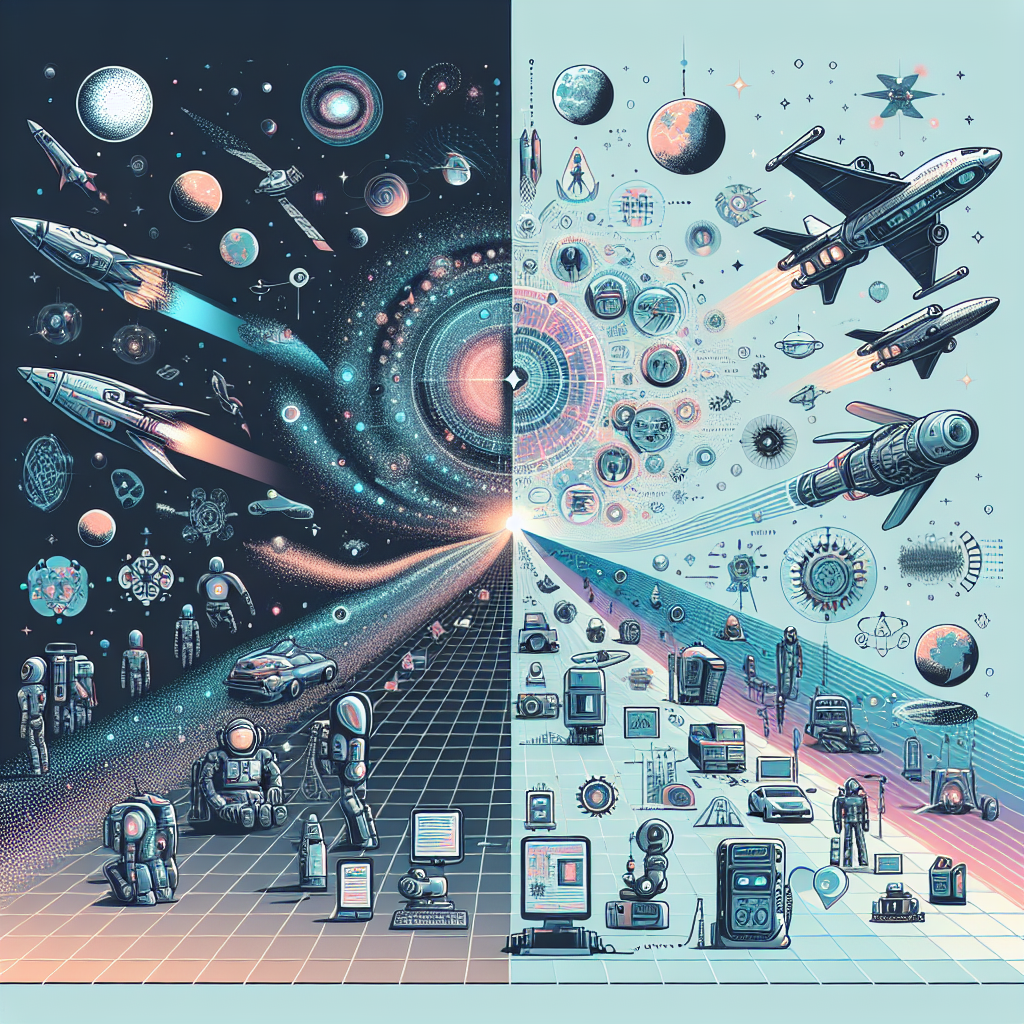From Science Fiction to Reality: The Evolution of AGI and Its Potential Applications
Artificial General Intelligence (AGI) is a concept that has long been relegated to the realm of science fiction. However, recent advancements in technology have brought us closer to realizing the potential of AGI and its applications in various fields. In this article, we will explore the evolution of AGI, its current state, and the potential applications that it holds for the future.
Evolution of AGI
AGI refers to a type of artificial intelligence that possesses general cognitive abilities similar to those of humans. Unlike narrow AI, which is designed for specific tasks, AGI has the capacity to learn, reason, and adapt to new situations in a way that is comparable to human intelligence.
The concept of AGI has its roots in the early days of artificial intelligence research. The term was first coined by computer scientist John McCarthy in the 1950s, who envisioned a future where machines could perform any intellectual task that a human could. However, for many years, AGI remained a distant dream, as researchers struggled to develop the necessary technology to create truly intelligent machines.
In recent years, there has been a resurgence of interest in AGI, fueled by advancements in machine learning, neural networks, and deep learning. These technologies have enabled researchers to develop AI systems that can perform complex tasks such as natural language processing, image recognition, and game playing with a level of proficiency that was previously thought to be beyond the reach of machines.
Today, AGI is no longer just a concept in science fiction – it is a reality that is rapidly evolving. Companies like OpenAI and DeepMind are at the forefront of AGI research, developing systems that are capable of learning from vast amounts of data and adapting to new challenges in real-time.
Potential Applications of AGI
The potential applications of AGI are vast and varied, with implications for nearly every industry and aspect of society. Some of the most promising applications of AGI include:
1. Healthcare: AGI has the potential to revolutionize healthcare by enabling more accurate diagnosis and treatment of diseases. AI systems can analyze vast amounts of medical data to identify patterns and trends that can help doctors make more informed decisions about patient care.
2. Finance: AGI can be used to optimize investment strategies, predict market trends, and detect fraud in financial transactions. AI systems can analyze massive amounts of data in real-time to make split-second decisions that can potentially save companies millions of dollars.
3. Transportation: AGI can improve the safety and efficiency of transportation systems by enabling autonomous vehicles to navigate complex environments without human intervention. AI systems can analyze real-time traffic data to optimize routes and minimize congestion on roads.
4. Education: AGI can personalize learning experiences for students by adapting to their individual needs and learning styles. AI systems can analyze student performance data to identify areas where they may need additional support and provide targeted interventions to help them succeed.
5. Entertainment: AGI can create immersive and interactive experiences in entertainment, such as virtual reality games and movies. AI systems can generate realistic characters and environments that respond to user input in real-time, creating a truly immersive experience for users.
FAQs
Q: How close are we to achieving AGI?
A: While we have made significant advancements in AI technology in recent years, true AGI is still a long way off. Researchers are making progress in developing systems that can perform complex tasks, but creating machines that possess the full range of human cognitive abilities remains a daunting challenge.
Q: What are the ethical implications of AGI?
A: The development of AGI raises numerous ethical concerns, including issues related to privacy, bias, and the potential for job displacement. It is important for researchers and policymakers to consider these implications and develop appropriate safeguards to ensure that AGI is used responsibly.
Q: Will AGI be able to surpass human intelligence?
A: It is difficult to predict the ultimate capabilities of AGI, but some researchers believe that it has the potential to surpass human intelligence in certain areas. However, it is important to remember that AGI is a tool that can be used to augment human capabilities, rather than replace them entirely.
In conclusion, AGI represents a new frontier in artificial intelligence that has the potential to revolutionize the way we live, work, and interact with the world around us. While there are still many challenges to overcome, the rapid evolution of AGI technology holds promise for a future where intelligent machines can assist us in ways that were once thought impossible. As we continue to explore the possibilities of AGI, it is important to consider the ethical implications and ensure that this technology is used for the benefit of society as a whole.

